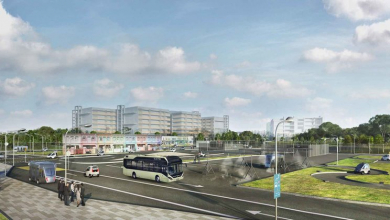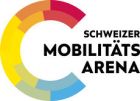Volvo and NTU to trial autonomous electric buses in Singapore
Volvo Buses and Nanyang Technological University (NTU) in Singapore have signed a cooperation agreement on a research and development program for autonomous electric buses. The program is part of the Land Transport Authority of Singapore’s drive to create new solutions for tomorrow’s sustainable public transport.
Singapore and its Land Transport Authority (LTA) are recognized for their focus on public transport and deployment of autonomous vehicles in the effort to create a sustainable city environment. Singapore has announced that self-driving buses will be deployed in several areas of the country by 2022.
For Volvo this will be the first autonomous application in public transportation. Volvo has already demonstrated the autonomous technology in mining, quarry and refuse collection operations.
“We are seeing fast-growing interest in both autonomous and electric vehicles in cities all over the world. Together with NTU, one of the world’s leading universities of technology, we now have the possibility of testing various solutions under realistic conditions in a major city that has high ambitions for its public transport,” said Håkan Agnevall, President Volvo Buses.
He added:
“We consider Singapore and NTU as excellent partners for Volvo, offering an enabling environment and complete ecosystem of research, development and implementation of new solutions. The technology developed in Singapore can contribute to future autonomous applications by Volvo Buses.”
The basis of the program consists of two all-electric 12-metre Volvo 7900 Electric buses, of the same type that Volvo Buses already delivers today. Volvo and NTU will build the autonomous driving solution on Volvo’s platform.
One of the autonomous electric buses in the program will be used on Singapore’s advanced new test facility for autonomous vehicles, CETRAN*, which was inaugurated in November 2017. Here, NTU’s researchers will in a fenced-off area be able to test new functionality and study how the bus interacts with other road-users in various conditions.
The second bus will be used for tests in the bus depot in partnership with the public transport operator SMRT. The aim is that tomorrow’s autonomous buses should be able to charge their batteries, drive through the depots to the vehicle wash and park – entirely autonomously.
NTU President Professor Subra Suresh, said, “Industry-academic connections are key in nurturing an environment which promotes innovation, research excellence, and technological change for a better tomorrow. NTU takes pride in its strong industry connections, and this partnership with Volvo will pave the way for future mobility solutions by developing and testing autonomous buses right here on campus. These solutions will further strengthen Singapore's vision of embracing autonomous vehicle technologies and enhance public transportation.”

12. Januar 2018
AUTOMAT VOR ORT: KONFERENZ AUTOMATICAR 2020
Am 16. September findet der Fachkongress AUTOMATICAR zum 2. Mal änlässlich der ...
»weiterlesenAUTOMAT vor Ort: Konferenz AUTOMATICAR
Am 12. April fand das erste Mal die von der Mobilitätsakademie des TCS organisierte ...
»weiterlesenAutomat vor Ort: EPTA Conference 2017
EPTA Conference 2017 „Shaping the Future of Mobility“ Luzern, Verkehrshaus, Mittwoch, 8. ...
»weiterlesenAuto-mat vor Ort: Automatische Shuttlebusse tpf
Am 22. September war www.auto-mat.ch live vor Ort, als die ersten beiden automatischen ...
»weiterlesen


